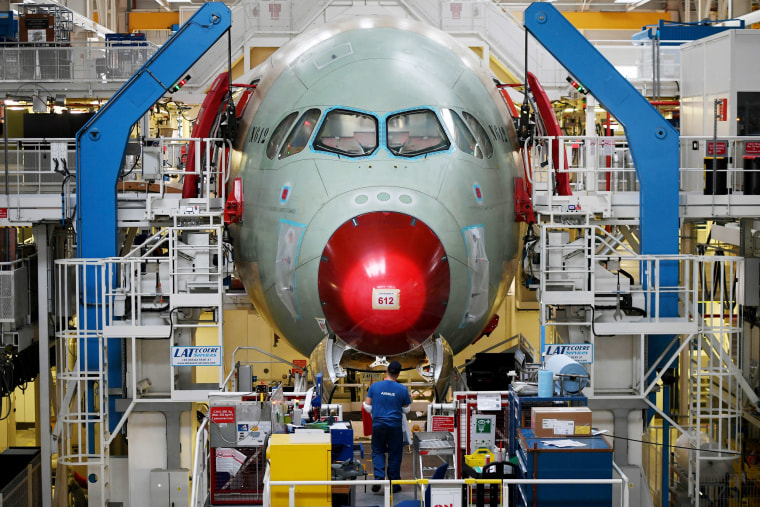In a recent development that has sent shockwaves through the aviation industry, the Federal Aviation Administration (FAA) has raised concerns about the potential use of counterfeit titanium in aircraft manufactured by leading aerospace giants Boeing and Airbus. The presence of counterfeit materials in critical airplane components poses a significant threat to aviation safety and has prompted a thorough investigation by regulatory authorities.
The use of counterfeit materials in the aerospace industry is a serious issue that can have far-reaching consequences. Titanium, a lightweight and strong metal widely used in aircraft construction for its durability and resistance to corrosion, is a critical component in ensuring the structural integrity of airplanes. The discovery of counterfeit titanium in aircraft parts raises questions about the quality control processes employed by manufacturers and the potential risks associated with compromised materials.
The FAA’s warning comes at a time when the aviation industry is already under scrutiny following a series of high-profile safety incidents involving Boeing’s 737 MAX aircraft. The global grounding of the 737 MAX fleet following two deadly crashes raised concerns about aircraft safety and regulatory oversight, leading to increased scrutiny of the manufacturing practices of aerospace companies.
The implications of using counterfeit materials in aircraft are profound and cannot be understated. The structural integrity of airplanes relies on the quality and reliability of the materials used in their construction. Counterfeit materials, which may not meet the stringent standards required for aerospace applications, can compromise the safety and performance of aircraft, putting passengers and crew at risk.
The investigation into the potential use of counterfeit titanium in Boeing and Airbus planes highlights the need for enhanced quality control measures and oversight in the aerospace industry. It underscores the importance of rigorous testing and verification processes to ensure the authenticity and integrity of materials used in aircraft manufacturing.
While Boeing and Airbus have yet to publicly address the FAA’s concerns, the aviation industry as a whole must take proactive steps to address the issue of counterfeit materials. Implementing robust supply chain management practices, conducting thorough inspections of materials, and enhancing collaboration with regulatory authorities are essential to safeguarding the integrity and safety of aircraft.
As the investigation unfolds and more information comes to light, the aviation industry must prioritize transparency, accountability, and a commitment to upholding the highest standards of safety and quality in aircraft manufacturing. The use of counterfeit materials in airplanes is a serious threat that cannot be ignored, and decisive action is required to prevent any compromises to aviation safety.
